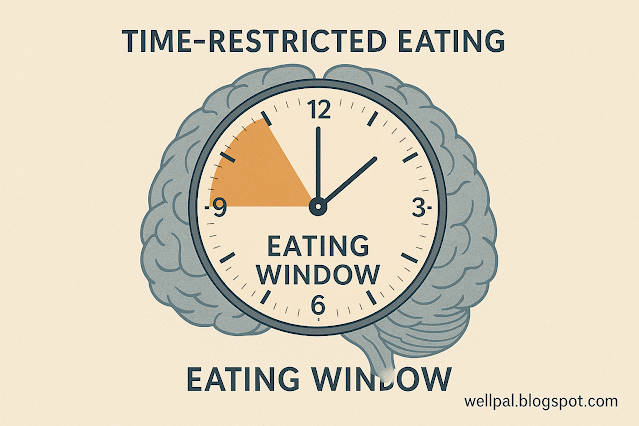- Get link
- X
- Other Apps
💡 Neurofitness blends intermittent fasting, neurofeedback, and targeted training to nudge brain plasticity.
🧠 This guide shares practical, science-informed methods to strengthen attention, memory, and mental agility.
🚦 Educational only. Fasting, neurofeedback, or supplements can affect health—work with qualified professionals.
Empathy Story: Finding clarity after burnout 🌫️
David, a deadline-heavy designer, felt creativity drain away. A simple routine—14-hour fasts, twice-weekly neurofeedback, daily puzzles—brought focus back within weeks. Tasks shrank, ideas brightened. Small, steady neurofitness shifted his day from fog to flow.
✅ Self-Check: Are you neurofit?
Answer 10 yes/no questions. A brief 2-second analysis (with an ad) appears before your tailored action plan.
⏳ Analyzing your responses…
Important: Start conservatively with fasting/exercise; avoid if pregnant, underweight, or with medical conditions unless cleared by a clinician.
Expert Dialogue: The science of rewiring 🧑🔬
Host: How does intermittent fasting relate to plasticity?
Dr. Alex Nguyen: “Fasting encourages metabolic switching toward ketones and can elevate brain-derived neurotrophic factor (BDNF), a key player in learning-related synaptic change.”
Host: And neurofeedback?
Dr. Nguyen: “EEG feedback trains self-regulation of attention networks. Some studies report medium effect sizes for executive function when protocols are well-matched to the person.”
Host: When do people notice changes?
Dr. Nguyen: “Often within a few sessions for focus; more durable gains build over 8–12 weeks of consistent habits.”
Why brain plasticity matters 🧩
- Adaptive learning: Networks rewire to meet new challenges.
- Stress resilience: Robust circuits buffer dips in focus and mood.
- Lifelong growth: Adult brains still change—habits can guide the change.
7 evidence-informed neurofitness strategies 🔬
1) Intermittent fasting (≈14–16h)
- Idea: Gentle overnight fasts can align metabolism and support neurotrophic signaling.
- Practice: Start with 12–14h; maintain hydration; avoid if contraindicated without medical guidance.
2) Neurofeedback
- Idea: Real-time EEG feedback trains attention/self-regulation.
- Practice: 20-minute sessions, 2–3×/week with a trained provider; personalize protocols.
3) Cognitive puzzle workouts
- Idea: Targeted drills can strengthen working memory and problem-solving.
- Practice: 10–15 min/day using reputable apps or paper tasks; vary difficulty.
4) Omega-3–rich nutrition
- Idea: EPA/DHA help maintain synapses and normal inflammation balance.
- Practice: Salmon, sardines, walnuts, flax; consider algae-based DHA if plant-only.
5) Aerobic exercise
- Idea: Movement boosts neurotrophic factors and mood.
- Practice: 30 min brisk walk/cycle, 3–5× weekly; sprinkle short movement breaks.
6) Mindful meditation
- Idea: Attention training engages prefrontal networks.
- Practice: 10–20 min daily (guided breath or body scan); pair with light stretching.
7) Sleep optimization
- Idea: Slow-wave sleep consolidates new pathways.
- Practice: 7–9 h nightly; regular schedule; dim screens 60 min before bed.
📊 Quick Poll: Which will you try first?
❓ FAQs: Neurofitness deep dive
How might fasting influence BDNF?
Time-restricted eating can shift energy use and is associated in some studies with increased neurotrophic signaling that supports learning. Start conservatively and personalize with professional input.
Is neurofeedback proven?
Evidence varies by protocol and population; some reviews report medium effects for attention/executive skills when programs are individualized and well-controlled.
How many sessions show changes?
Some people notice focus benefits within a few sessions; more durable improvements often build over 8–12 weeks of consistent practice.
Do brain-training apps really help?
Targeted drills can sharpen specific skills (e.g., working memory). Combine them with sleep, movement, and real-world learning for best transfer.
Are long fasting windows risky?
They can be for some people (e.g., migraines, low blood sugar). Favor gentle windows (12–14h) and medical guidance if you have health conditions.
CTA: Ignite your neurofitness journey ✨
Pick one small change today—delay breakfast by 90 minutes, add 10 minutes of mindfulness, or book a neurofeedback consult. Consistency compounds.
- 🕒 Start with gentle 12–14h fasts; hydrate well
- 🧘 Daily 10–20 min mindfulness or breathwork
- 🚶 30 min brisk movement most days
This article is educational and not medical advice. For testing and treatment, consult qualified professionals.
Explore All Wellness Series – Daily Habits for Longevity, Brain Health & Balanced Living
Explore All Wellness Series – Daily Habits for Longevity, Brain Health & Balanced Living
Discover the full collection designed to improve healthspan, mental clarity, and lifestyle alignment.
💚 Thank you for reading!
We hope you feel informed, supported, and inspired.



Comments
Post a Comment